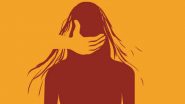Washington, March 31: Does a person's social position influence their degree of stress? Tulane University researchers investigated this topic and discovered that social rank, particularly in females, did alter stress response.
In a study published in Current Biology, Tulane psychology professor Jonathan Fadok, PhD, and postdoctoral researcher Lydia Smith-Osborne looked at two forms of psychosocial stress -- social isolation and social instability -- and how they manifest themselves based on social rank. Marital Status Reduces Physical Activity Levels, Know Why.
They conducted their research on adult female mice, putting them in pairs and allowing them to form a stable social relationship over several days. In each pair, one of the mice had high, or dominant social status, while the other was considered the subordinate with relatively low social status. After establishing a baseline, they monitored changes in behavior, stress hormones and neuronal activation in response to chronic social stress. How Being Poor Can Change Your Genes: Study Reveals Connection Between Poverty and Genetic Diseases.
"We analyzed how these different forms of stress impact behavior and the stress hormone corticosterone (an analogue of the human hormone, cortisol) in individuals based on their social rank," said Fadok, an assistant professor in the Tulane Department of Psychology and the Tulane Brain Institute. "We also looked throughout the brain to identify brain areas that are activated in response to psychosocial stress."
"We found that not only does rank inform how an individual responds to chronic psychosocial stress, but that the type of stress also matters," said Smith-Osborne, a DVM/PhD and the first author on the study.
She discovered that mice with lower social status were more susceptible to social instability, which is akin to ever-changing or inconsistent social groups. Those with higher rank were more susceptible to social isolation, or loneliness.
There were also differences in the parts of the brain that became activated by social encounters, based upon the social status of the animal responding to it and whether they had experienced psychosocial stress.
"Some areas of a dominant animal's brain would react differently to social isolation than to social uncertainty, for example," Smith-Osborne said. "And this was also true for subordinates. Rank gave the animals a unique neurobiological 'fingerprint' for how they responded to chronic stress." Do the researchers think the results can translate to people? Perhaps, Fadok said.
"Overall, these findings may have implications for understanding the impact that social status and social networks have on the prevalence of stress-related mental illnesses such as generalized anxiety disorder and major depression," he said. "However, future studies that use more complex social situations are needed before these results can translate to humans."
(The above story is verified and authored by ANI staff, ANI is South Asia's leading multimedia news agency with over 100 bureaus in India, South Asia and across the globe. ANI brings the latest news on Politics and Current Affairs in India & around the World, Sports, Health, Fitness, Entertainment, & News. The views appearing in the above post do not reflect the opinions of LatestLY)













 Quickly
Quickly


